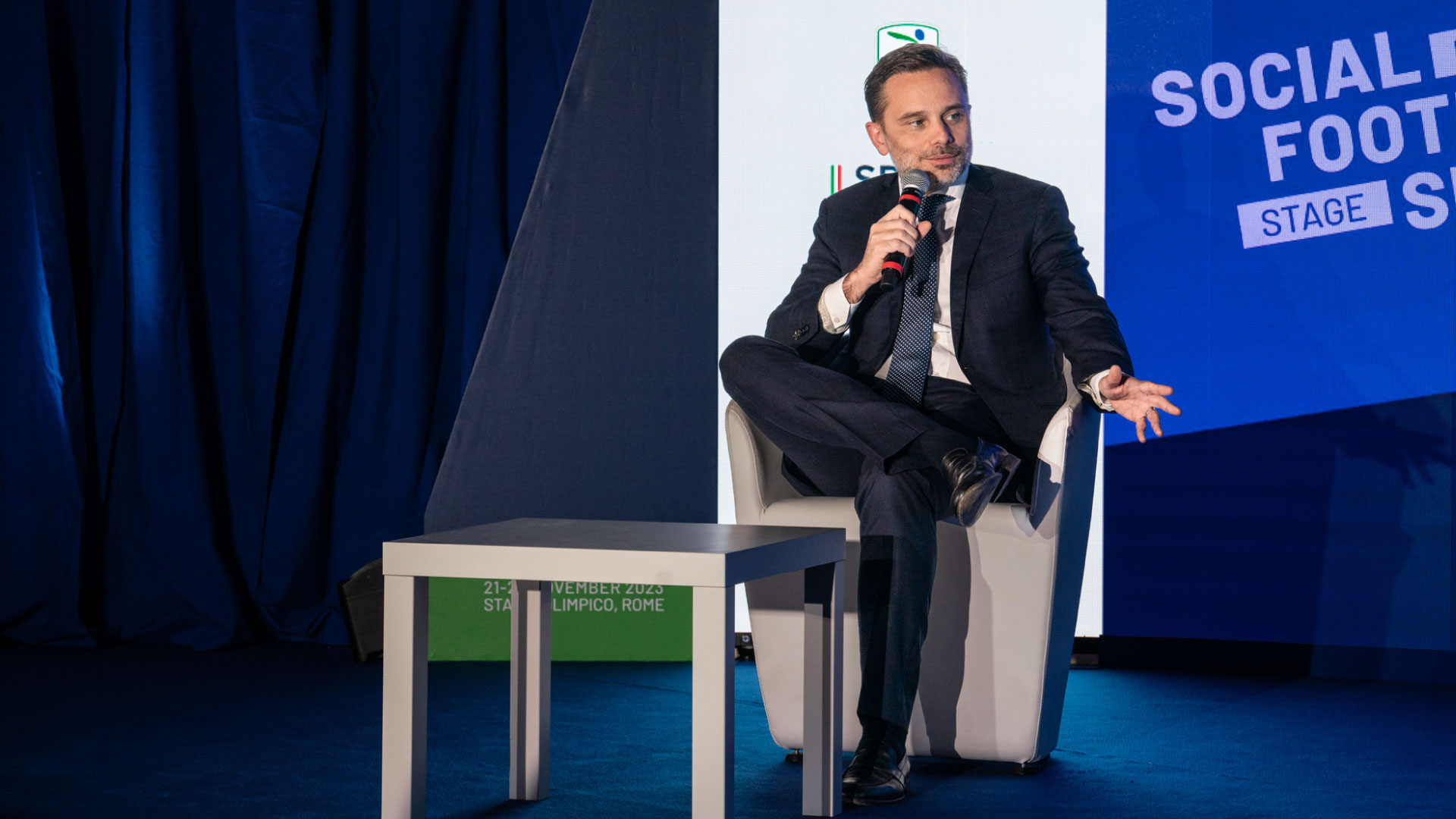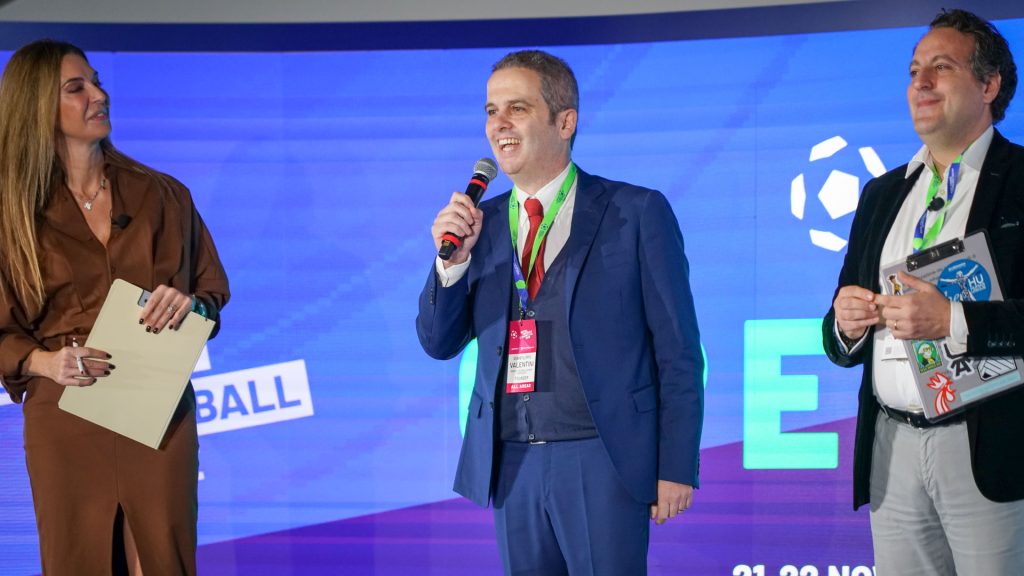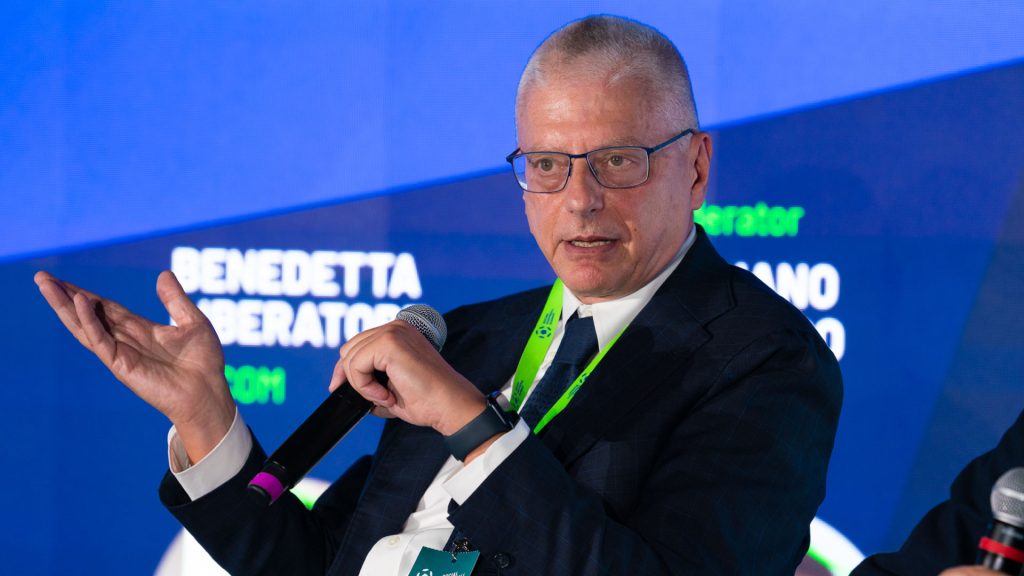
The Italian Football Industry Under X-Ray: the words of Furlani, Valentini, and Amati
In these interviews, conducted by Fortune Italia, the situation of Italian football has been analyzed from an industrial perspective, providing a comprehensive overview.
Giorgio Furlani, ceo of AC Milan, Gianfilippo Valentini, founder of Go Project and creator of the ‘Social Football Summit’, and Antonio Amati, general manager of the IT division of Almaviva, analysed the state of health of the Italian football industry, analysing its criticalities and development opportunities. Each of these three voices offered a different key to interpretation. From the age-old issue of infrastructure to piracy, passing through social communication.
(Interviews conducted by ‘Fortune Italia’, complete in the February 2024 issue no. 1 year 7)
Giorgio Furlani
The red-black executive focused on the relationship between football and Italian institutions, as well as the situation of AC Milan, which is increasingly aiming to become a virtuous example on the national and international scene.
How do you make a league that no longer seems to have any appeal and is buried under a mountain of debt attractive to players and investors?
“We have to work hard and do it all together. Football is an extraordinary tool to attract capital and to participate in the growth of the country’s GDP.
We have systemic problems, including sports infrastructures that are embarrassing, to put it mildly. We have serious problems with piracy of sports entertainment. We have problems with a series of rules and laws that do not help us to be competitive at the European level. To make it clear: if we want to incorporate this large slice of the economy within the country system, we have to work together synergistically”.
Are there many foreign entrepreneurs who want to invest in Italian football?
“Of course, but we have to abandon the idea that football is a game and nothing else. Football is an industry. We are talking about clubs that have hundreds of millions in turnover and can bring hundreds of millions in investment to our country.”
As happened with Milan?
“After difficult years, the recovery and relaunch of this club, which represents the history of Italian football in the world, was made possible by the Elliott Fund, which avoided the disaster of bankruptcy. Today, however, we are experiencing a phase of acceleration and growth. We are in an important new chapter of the club’s evolution, supported by Gerry Cardinale’s strategic vision, RedBird’s skills and experience in sport business, media, the ability to develop global brands and create virtuous synergies. We have embarked on a fundamental growth path to close the gap with the big teams in Europe, especially those in the Premier League, which can count on significant revenues.”
Gianfilippo Valentini
The founder of Go Project, a communication and software development company, creator of the Social Football Summit and an expert in digital and sports communication, focused on the growth of social communication and the possibilities that new technologies can offer football. He also spoke about stadiums as a medium for football tourism.

The stadiums of major international clubs have become a tourist destination for many fans, is there a future for this ‘tourism’ that is less and less niche? And can it be imagined in Italy where, however, the most important stadiums are old and often publicly owned?
“This is a very interesting point about football tourism and the experience that fans seek during matches. Integrating the passion for football with the exploration of new cultures and destinations has become a key element for many fans. However, the infrastructure of Italian stadiums often does not meet the needs of fans. A fan’s experience is not only related to the sporting aspect of the match, but also to the possibility of sharing emotions and interacting with other supporters. Renovating and improving stadium infrastructure could also increase the attractiveness of Italian football for international visitors. The example of the Italian Super Cup in Riyadh demonstrates how the Lega Serie A is looking to expand and innovate its operations, with opportunities outside its home territory. This can lead to new ways of engaging global fans by creating unique experiences.
Football tourism can therefore be a significant driver for the economy, and improving stadium infrastructure is a key step in ensuring that Italy remains an attraction for fans from around the world. Innovation in the sector, both in terms of infrastructure and operations, can help consolidate the position of Italian football in the international context.”
You are the founder of Go Project, a company that was the first to bring the topic of social media into the sphere of sport and football, with an algorithm that assigns a value to the social accounts of football teams. What can still be innovated when it comes to image value for footballers and sports clubs?
“The social media sector is constantly evolving, with rapid paradigm shifts. Using footballers and teams as ‘digital hubs’ to reach fans is a strategic and trend-sensitive approach. The expansion of football on a global scale – made possible by technology that has overcome geographical barriers – opens up unprecedented opportunities for engaging an increasingly international audience.
Teams are supported by digital and communication structures, and at the same time the players themselves are supported by dedicated social media managers, which has contributed to their effective positioning in the online landscape”.
Antonio Amati
Almaviva’s general IT manager focused mainly on the opportunities that digital technologies can offer the football world in the future, without losing sight of the problem of piracy.

He then illustrated what tools are available to combat this phenomenon.
The Lega Serie A has developed Piracy Shield, the national platform that aims to automatically black out illegal streaming sites. Can he explain how this technology works?
“From what has been reported by official channels, the platform, which for now operates exclusively at a national level, receives reports of sites and internet resources that are broadcasting content without authorisation”.
Do you think it will be an effective tool?
“Piracy Shield represents a significant step in the fight against illegal streaming in Italy. However, complementary measures are needed to extend the effectiveness of unreachability operations beyond the national perimeter, either with specific agreements between the competent authorities of other countries, or with intelligence services and advanced technological tools that guarantee the inhibition of illegally transmitted content’.
The platform lays the foundation for an even safer future in terms of digital rights protection. There was a need for this, because to date the current methods have proven their limitations”.


